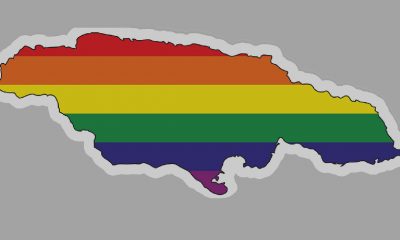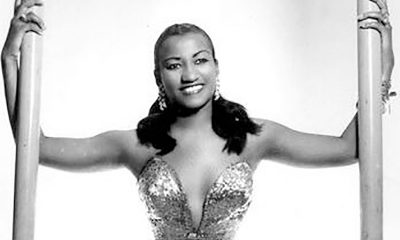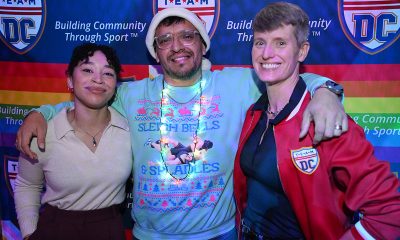News
Editorial: ‘El Orgullo LGBTI+ y la lucha por el matrimonio igualitario en Cuba’
Activistas han llegado a este mes del Orgullo más organizados que nunca
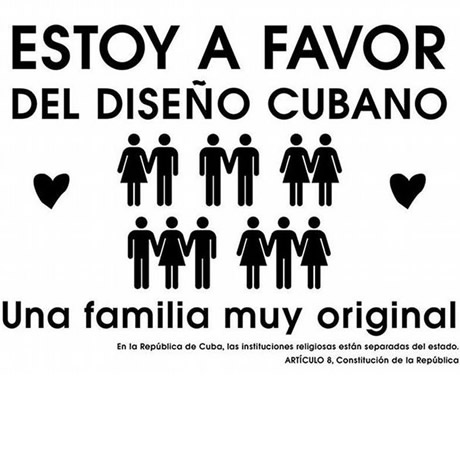
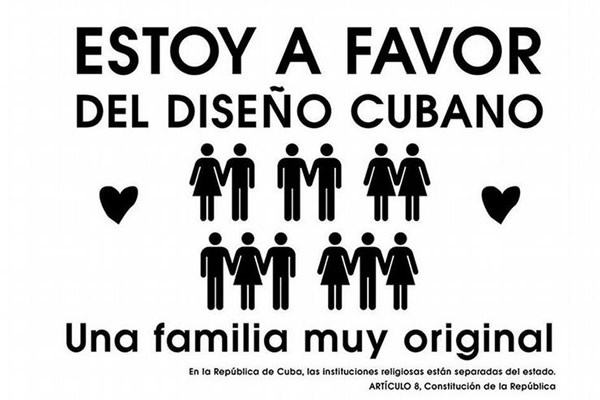
Los colectivos LGBTI+ de Cuba han llegado a este 28 de junio más organizados que nunca antes.
La Plataforma 11M, que es el grupo más activo, hizo gala de fuerza este mes con una besada virtual y un tuitazo a favor del matrimonio igualitario que se reeditará el 11 de cada mes, en referencia al 11 de mayo de 2019, cuando cientos de activistas y sus aliados marcharon en La Habana sin autorización.
El Orgullo que los movimientos LGBTI+ del mundo entero celebraron este domingo es una celebración de la rebeldía, a diferencia de otras conmemoraciones, como la del Día Internacional contra la Homofobia, la Transfobia y la Bifobia ―el 17 de mayo―, que se originó en un gesto institucional de la Organización Mundial de la Salud.
Mientras el 17 de mayo es una fecha que recuerda el triunfo del sentido común sobre los prejuicios culturales del discurso médico, el 28 de junio significa la rebeldía LGBTI+ sin concesiones. El acto de desobedecer.
Ninguna institución, ni siquiera los Estados, tiene derecho a enfermarnos o sanarnos, a igualarnos a todos o rebajarnos a una ciudadanía de segunda clase, según determine la voluntad política.
Las instituciones cubanas, que siguen patologizando los cuerpos trans y discriminando el acceso a la fertilización, por hablar solo de dos gestos reguladores, llevan años retardando la implementación en las leyes de matrimonios LGBTI+ que, no obstante, existen.
En la tradición patriarcal, existir más allá del Estado es un gran atrevimiento. En el mundo heterosexual, es el Estado quien decide qué eres. Se ocupa de reglamentarlo y registrarlo minuciosamente, siempre con el afán controlador y empobrecedor que es consustancial al origen y la práctica de los Estados.
Los maricones y tortilleras y travestis y trans nacimos en esa tradición. Vivimos en la paradoja de negar ese orden y a la vez, como forzosamente, sin más opción, querer asimilarnos a él.
Nosotras no tenemos patria.
Las patrias no son esencias, sino discursos. Y siempre, hasta ahora, ha sido el discurso de un grupo, de una clase o de una ideología que pretende prevalecer.
Ningún ideal de ciudadanía concebido desde los presupuestos nacionalistas tradicionales ha aportado siquiera un trato respetuoso para las comunidades LGBTI+ en Cuba ni en ninguna parte.
No obstante, como fuimos asimiladas a esos Estados sin que nos consultaran y recibimos de ellos, como una asignación incuestionable, un género y una orientación sexual, tenemos derecho a exigirles a estas alturas, al menos, un trato igualitario.
El matrimonio civil es un derecho alcanzado en la mayor parte del mundo desde el siglo XIX por las personas heterosexuales y afiliadas en general a las normas patriarcales.
Es, también, una institución reguladora que establece solamente una relación de esas parejas con el poder efectivo e implica una sumisión. Otras opciones de relacionarse o de constituir familias, por suerte, siguen funcionando al margen del sistema.
Pelear por el matrimonio igualitario, como ha hecho en Cuba la comunidad LGBTI+ con más empeño desde 2018, ha sido, sin embargo, la oportunidad más viable para desmantelar la vieja patria donde hemos vivido como inquilinos hasta ahora.
Los intentos de activismo sustentados por una sensibilidad “oficial”, como el emprendido por Mariela Castro y el Centro Nacional de Educación Sexual durante la última década, fracasaron precisamente por haber nacido sujetos al deseo de asimilarnos a un orden que nos excluye, sin comprender la naturaleza histórica de esa relación opresiva.
Sin revisar y cuestionar abiertamente la homofobia y transfobia de Estado, no solo cultural sino política, ejercida en Cuba hasta el presente, las comunidades LGBTI+ no tienen ninguna oportunidad de conseguir ni siquiera la igualdad sometida que pudiéramos obligar al poder a otorgarnos.
El Orgullo LGBTI+ debería ser la fiesta de quienes ya superaron la tentación de asimilarse y, si van a pelear en el terreno del Estado, fingirán que aspiran a incluirse en las reglas para ganar pequeñas victorias.
El matrimonio igualitario es la meta de ahora. Y hay que lograrlo sin referendo, a pesar de la norma establecida por el parlamento cubano con el propósito de buscar un consenso injusto, por razones no solo prácticas.
El matrimonio igualitario no nos dará una patria, pero hará más habitable la patria que nos impusieron. Con esa certeza hay que ir por él.
Chile
Far-right José Antonio Kast elected Chile’s next president
Advocacy group declares ‘state of alert’ over president-elect’s opposition to LGBTQ rights

José Antonio Kast on Sunday won the second round of Chile’s presidential election.
Kast is the far-right leader of the Republican Party who was a member of the country’s House of Deputies from 2002-2018. He defeated Jeannette Jara, a member of the Communist Party of Chile who was former labor and social welfare minister in outgoing President Gabriel Boric’s government, by a 58.2-41.8 percent margin.
The election’s first round took place on Nov. 16.
Kast and Jara faced each other in the runoff after no candidate received at least 50 percent of the vote in the first round. Kast will take office on March 11.
“Under his leadership, we are confident Chile will advance shared priorities to include strengthening public security, ending illegal immigration, and revitalizing our commercial relationship,” said U.S. Secretary of State Marco Rubio on Sunday in a statement. “The United States looks forward to working closely with his administration to deepen our partnership and promote shared prosperity in our hemisphere.”
The Washington Blade has previously reported Kast has expressed his opposition to gender-specific policies, comprehensive sex education, and reforms to Chile’s anti-discrimination laws. The president-elect has also publicly opposed the country’s marriage equality law that took effect in 2022.
The Movement for Homosexual Integration and Liberation, a Chilean LGBTQ and intersex rights group known by the acronym Movilh, in a statement acknowledged the election result. Movilh also declared a “state of alert, given this leader’s (Kast’s) public and political trajectory, characterized for decades by systematic opposition to laws and policies aimed at equality and nondiscrimination of LGBTIQ+ individuals.”
“We urge the president-elect and far-right sectors that follow him to understand and internalize (the fact) that the rights of LGBTIQ+ people are inscribed in the universality of human rights, and they are not built upon an ideology or a political trend,” said Movilh in its statement. “This is not, and never has been, a left-wing or right-wing issue, although some on both sides have gone to great lengths to suggest otherwise, without any basis other than their own partisan or electoral aspirations.”
Organizado Trans Diversidades, a group that advocates on behalf of trans and nonbinary Chileans, on social media said it will “continue the fight for our community’s human rights.”
Virginia
DOJ seeks to join lawsuit against Loudoun County over trans student in locker room
Three male high school students suspended after complaining about classmate
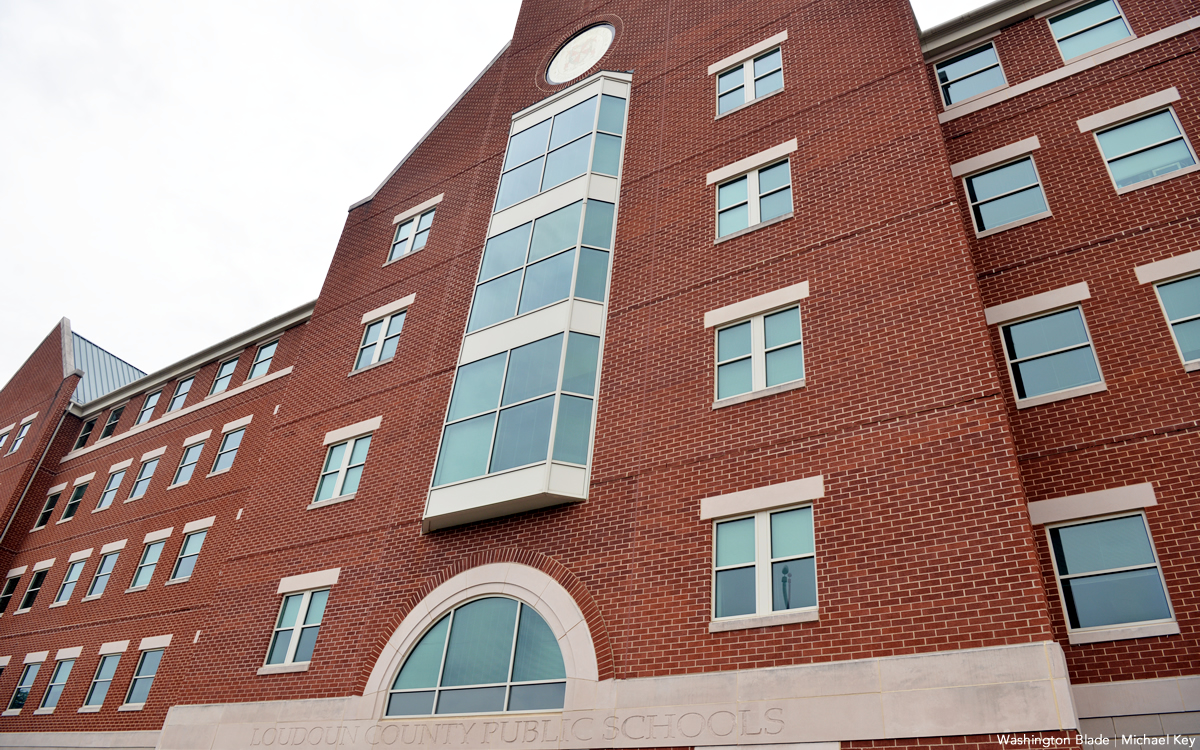
The Justice Department has asked to join a federal lawsuit against Loudoun County Public Schools over the way it handled the case of three male high school students who complained about a transgender student in a boys’ locker room.
The Washington Blade earlier this year reported Loudoun County public schools suspended the three boys and launched a Title IX investigation into whether they sexually harassed the student after they said they felt uncomfortable with their classmate in the locker room at Stone Bridge High School in Ashburn.
The parents of two of the boys filed a lawsuit against Loudoun County public schools in U.S. District Court for the Eastern District of Virginia in Alexandria. The Richmond-based Founding Freedoms Law Center and America First Legal, which White House deputy chief of staff Stephen Miller co-founded, represent them.
The Justice Department in a Dec. 8 press release announced that “it filed legal action against the Loudoun County (Va.) School Board (Loudoun County) for its denial of equal protection based on religion.”
“The suit alleges that Loudoun County applied Policy 8040, which requires students and faculty to accept and promote gender ideology, to two Christian, male students in violation of the Equal Protection Clause of the 14th Amendment to the U.S. Constitution,” reads the press release.
Assistant Attorney General Harmeet K. Dhillon of the Justice Department’s Civil Rights Division in the press release said “students do not shed their First Amendment rights at the schoolhouse gate.”
“Loudoun County’s decision to advance and promote gender ideology tramples on the rights of religious students who cannot embrace ideas that deny biological reality,” said Dhillon.
Outgoing Virginia Gov. Glenn Youngkin and outgoing Virginia Attorney General Jason Miyares in May announced an investigation into the case.
The Virginia Department of Education in 2023 announced the new guidelines for trans and nonbinary students for which Youngkin asked. Equality Virginia and other advocacy groups claim they, among other things, forcibly out trans and nonbinary students.
The U.S. Department of Education’s Office of Civil Rights in February launched an investigation into whether Loudoun County and four other Northern Virginia school districts’ policies in support of trans and nonbinary students violate Title IX and President Donald Trump’s executive order that prohibits federally funded educational institutions from promoting “gender ideology.”
The White House
As house Democrats release Epstein photos, Garcia continues to demand DOJ transparency
Blade this week sat down with gay House Oversight Committee ranking member

Democrats on the House Oversight Committee have released new photos from Jeffrey Epstein’s email and computer records, including images highlighting the relationship between President Donald Trump and the convicted sex offender.
Epstein, a wealthy financier, was found guilty of procuring a child for prostitution and sex trafficking, serving a 13-month prison sentence in 2008. At the time of his death in prison under mysterious circumstances, he was facing charges of sex trafficking and conspiracy to traffic minors.
Among those pictured in Epstein’s digital files are Trump, former President Bill Clinton, former Trump adviser Steve Bannon, actor and director Woody Allen, economist Larry Summers, lawyer Alan Dershowitz, entrepreneurs Richard Branson and Bill Gates, and Andrew Mountbatten-Windsor.
One photo shows Trump alongside Epstein and a woman at a Victoria’s Secret party in New York in 1997. American media outlets have published the image, while Getty Images identified the woman as model Ingrid Seynhaeve.
Oversight Committee Democrats are reviewing the full set of photos and plan to release additional images to the public in the coming days and weeks, emphasizing their commitment to protecting survivors’ identities.
With just a week left for the Justice Department to publish all files related to Epstein following the passage of the Epstein Files Transparency Act, which requires the Justice Department to release most records connected to Epstein investigations, the Washington Blade sat down with U.S. Rep. Robert Garcia (D-Calif.), the ranking member on the Oversight Committee to discuss the current push the release of more documents.
Garcia highlighted the committee’s commitment to transparency and accountability.

“We’ve said anything that we get we’re going to put out. We don’t care who is in the files … if you’ve harmed women and girls, then we’ve got to hold you accountable.”
He noted ongoing questions surrounding Trump’s relationship with Epstein, given their long history and the apparent break in friendship once Trump assumed public office.
“There’s been a lot of questions about … Donald Trump and Jeffrey Epstein. They were best friends for 10 years … met women there and girls.”
Prior to Trump’s presidency, it was widely reported that the two were friends who visited each other’s properties regularly. Additional reporting shows they socialized frequently throughout the 1990s and early 2000s, attending parties at Trump’s Mar-a-Lago resort in Florida and Epstein’s residences. Flight logs from an associate’s trial indicate Trump flew on Epstein’s private jet multiple times, and Epstein claimed Trump first had sex with his future wife, Melania Knauss, aboard the jet.
“We’ve provided evidence … [that leads to] questions about what the relationship was like between Donald Trump and Jeffrey Epstein.”
Garcia stressed the need for answers regarding the White House’s role in withholding information, questioning the sudden change in attitude toward releasing the files given Trump’s campaign promises.
“Why is the White House trying to cover this up? So if he’s not covering for himself … he’s covering up for his rich friends,” Garcia said. “Why the cover up? Who are you hiding for? I think that’s the question.”
He confirmed that Trump is definitively in the Epstein files, though the extent remains unknown, but will be uncovered soon.
“We know that Trump’s in them. Yeah, he’s been told. We know that Trump’s in them in some way. As far as the extent of it … we don’t know.”
Garcia emphasized accountability for all powerful figures implicated, regardless of financial status, political party, or personal connections.
“All these powerful men that are walking around right now … after abusing, in some cases, 14‑ and 15‑year‑old girls, they have to be held accountable,” he said. “There has to be justice for those survivors and the American public deserves the truth about who was involved in that.”
He added that while he is the ranking member, he will ensure the oversight committee will use all available political tools, including subpoenas — potentially even for the president.
“We want to subpoena anyone that we can … everyone’s kind of on the table.”
He also emphasized accountability for all powerful figures implicated, regardless of financial status, political party, or relationship with the president.
“For me, they’re about justice and doing the right thing,” Garcia said. “This is about women who … were girls and children when they were being abused, trafficked, in some cases, raped. And these women deserve justice.”
“The survivors are strong.”
Deputy White House Press Secretary Abigail Jackson issued a statement regarding the release the photos, echoing previous comments from Republicans on the timing and framing of the photos by the Oversight Committee.
“Once again, House Democrats are selectively releasing cherry-picked photos with random redactions to try and create a false narrative,” Jackson said.
“The Democrat hoax against President Trump has been repeatedly debunked and the Trump administration has done more for Epstein’s victims than Democrats ever have by repeatedly calling for transparency, releasing thousands of pages of documents, and calling for further investigations into Epstein’s Democrat friends,”
In a press release on Friday, Garcia called for immediate DOJ action:
“It is time to end this White House cover-up and bring justice to the survivors of Jeffrey Epstein and his powerful friends. These disturbing photos raise even more questions about Epstein and his relationships with some of the most powerful men in the world. We will not rest until the American people get the truth. The Department of Justice must release all the files, NOW.”





(Photo courtesy of the U.S. House Oversight Committee)

